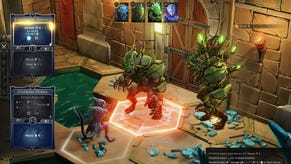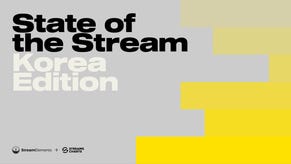Research Concludes Commercial Computer Games Can Support Learning in Schools
UK, 2 October 2006 - Commercial computer games have the potential to support learning in schools and teachers do not need to be games experts to use them effectively for teaching. These are some of the findings of a one-year research project Teaching with Games conducted in the UK by education innovator Futurelab and supported by Electronic Arts, the world's leading interactive entertainment software company, that investigated how commercial computer games can be used in the classroom. A report from the study, which is released today, highlights that using games in lessons is motivating and engaging, and teachers believe that they improve students' computer skills, strategic thinking and problem solving. The study further identifies areas that require consideration before deciding to use commercial games as part of school curriculum.
Teaching with Games also suggests that there are specific features of game play that could encourage student engagement, such as the opportunity to have autonomous control over a responsive environment, and the ability to use games familiar from home in which they can demonstrate expertise. In addition, findings from an Ipsos MORI survey into teachers' attitudes to using mainstream computer games in the classroom, published in January 2006 as part of the Teaching with Games study, revealed that 59% of teachers want to use computer games for educational purposes and 53% say they would do so because they are an interactive way of motivating and engaging students.
Trialling the use of three off-the-shelf computer games in four schools revealed that games can be a very versatile medium for teaching and learning. The games were successfully used in both competency-based and traditional content-based curricula.
Teachers' experience, teaching style, familiarity with the curriculum and the culture of the school, rather than gaming expertise, were identified as having the most impact on the successful integration of games into classroom learning. Furthermore, the study revealed that games used in the classroom environment do not have to be fully representative of reality to be useful in a lesson.
Teaching with Games also draws attention to a number of technical obstacles to the ultimate integration of games into daily lessons. Feedback from teachers highlights the need for new approaches to licensing and copy protection to allow easy installation and the running of games on school networks. The study further identified that technical support and flexibility around timetabling as well as more freedom to disaggregate the game for specific use in class could prove beneficial.
Claire Gemmell, a teacher at St John's School & Community College in Marlborough, commented: "I can definitely see the potential of using games in the classroom. It proved to be a great tool for motivating students and engaging their interest. I would like to use games for teaching in the future if the technical problems could be addressed."
"We have long recognised the potential of interactive computer games to stimulate the learning process", said Gerhard Florin, Executive Vice President and General Manager, International Publishing, EA. "The Teaching with Games study in collaboration with Futurelab has shown that commercial computer games have the potential to support education, which has raised the bar for ongoing collaboration between the industry and education sectors. We look forward to continued initiatives to help pave the way for meaningful integration of computer games into school curriculum."
Teaching with Games was established in August 2005 to explore the practical issues surrounding the use of interactive, off-the-shelf computer games in schools and the changes needed to enable games to better support learning. The project was supported by three of the world's leading interactive entertainment software companies: Electronic Arts; Microsoft; and Take-Two Interactive Software, as well as the Interactive Software Federation of Europe (ISFE). The project consisted of two Ipsos MORI surveys of students' and teachers' attitudes to the use of games, as well as case studies of 12 teachers in four secondary schools using The Sims 2 (EA), Knights of Honour (distributed by EA) and RollerCoaster Tycoon® 3 (Atari) in formal classroom time.
For further information and to view or download the project's final report, which includes findings, case studies, the Ipsos MORI surveys and observations on the use of games in the classroom, go to www.futurelab.org.uk/teachingwithgames.
Issued: Ends Ref: f026.doc
For further information
Futurelab: Lacia Ashman, tel: 0117 915 8222, lacia.ashman@futurelab.org.uk;
PR: Sarah Scott, Livewire Public Relations, tel: 020 8339 7440, sarah.scott@livewirepr.com;
EA: Tiffany Steckler, tel: +41 22 316 1322, tsteckler@europe.ea.com.
About Futurelab
Futurelab is passionate about transforming the way people learn. Tapping into the huge potential offered by digital and other technologies, it is developing innovative learning resources and practices that support new approaches to education for the 21st century. Working in partnership with industry, policy and practice, Futurelab:
incubates new ideas, taking them from the lab to the classroom
offers hard evidence and practical advice to support the design and use of innovative learning tools
communicates the latest thinking and practice in educational ICT
provides the space for experimentation and the exchange of ideas between the creative, technology and education sectors.
A not-for-profit organisation, Futurelab is committed to sharing the lessons learnt from our work in order to inform positive change to educational policy and practice. For further information, go to www.futurelab.org.uk. Registered charity 1113051
About Electronic Arts
Electronic Arts Inc. (EA), headquartered in Redwood City, California, is the world's leading interactive entertainment software company. Founded in 1982, the company develops, publishes, and distributes interactive software worldwide for videogame systems, personal computers and the Internet. Electronic Arts markets its products under four brand names: EA SPORTS, EA, EA SPORTS BIG and POGO. In fiscal 2006, EA posted revenue of $2.95 billion and had 27 titles that sold more than one million copies. EA's homepage and online game site is www.ea.com. More information about EA's products and full text of press releases can be found on the Internet at http://info.ea.com.
Electronic Arts, EA, EA SPORTS, EA SPORTS BIG, POGO and The Sims are trademarks or registered trademarks of Electronic Arts Inc. in the U.S. and/or other countries. All other trademarks are the property of their respective owners.
About the Microsoft Entertainment and Devices Division
Microsoft's Entertainment and Devices Division was created in September 2005 to support the company's software-based services vision and drive innovation in the digital entertainment space. The Entertainment and Devices Division is composed of four main businesses: the Interactive Entertainment Business, which includes both the Xbox and Games for Windows businesses; the Entertainment Business, which focuses on Microsoft's digital entertainment efforts in music, TV and video and includes the MSTV and the Windows XP Media Center Edition products; the Consumer Productivity Experiences Business, which includes the mice and keyboards business, the Macintosh Business Unit, and consumer productivity applications including Encarta, Money and Digital Image Suite; and the Mobile and Embedded Business, which drives the Windows Mobile-based devices business and focuses on the embedded market for Windows CE, Windows XP Embedded and the Automotive Business Unit.
About Take-Two Interactive Software, Inc.
Headquartered in New York City, Take-Two Interactive Software, Inc. is an integrated global developer, marketer, distributor and publisher of interactive entertainment software games and accessories for the PC, PlayStation® game console, PlayStation®2 computer entertainment system, PSP® (PlayStation®Portable) system, Xbox® and Xbox 360 video game and entertainment systems from Microsoft, Nintendo GameCube, Nintendo DS and Game Boy® Advance. The Company publishes and develops products through its wholly owned labels Rockstar Games, 2K and 2K Sports, and Global Star Software; and distributes products in North America through its Jack of All Games subsidiary. Take-Two also manufactures and markets video game accessories in Europe, North America and the Asia Pacific region through its Joytech subsidiary. The Company maintains sales and marketing offices in Cincinnati, New York, Toronto, London, Paris, Munich, Madrid, Milan, Sydney, Breda (Netherlands), Auckland, Shanghai and Tokyo. Take-Two's common stock is publicly traded on NASDAQ under the symbol TTWO. For more corporate and product information please visit our website at www.take2games.com.
About ISFE
ISFE (the Interactive Software Federation of Europe) was established in 1998 to represent the interests of the interactive software sector vis-à-vis the EU and international institutions. Initially founded by the national interactive software trade associations in the UK, France, Germany and the Netherlands, ISFE was enlarged in January 2002 to include any company representing the industry, based in the 25 Member States plus Norway, Iceland, Switzerland and Liechtenstein. Most major publishers of the interactive software industry have now joined ISFE (see full list on www.isfe-eu.org).
About Infogrames Entertainment and Atari:
Infogrames Entertainment (IESA), the parent company of the Atari Group, is listed on the Paris Euronext stock exchange (ISIN code: FR-0000052573) and has two principal subsidiaries: Atari Europe, a privately-held company, and Atari, Inc., a United States corporation listed on NASDAQ (ATAR). The Atari Group is a major international producer, publisher and distributor of interactive entertainment software for all market segments and in all existing game formats (Microsoft, Nintendo and Sony) and on CD-ROM for PC. Its games are sold in more than 60 countries.
The Atari Group's extensive catalogue of popular games is based on original franchises (Driver, Alone in the Dark, V-Rally, Test Drive, RollerCoaster Tycoon, etc.) and international licenses (Matrix, Dragon Ball Z, Dungeons & Dragons, etc.). For more information: http://www.atari.com.
PlayStation and PSP are registered trademarks of Sony Computer Entertainment Inc. Microsoft, Xbox and Xbox 360 are either registered trademarks or trademarks of Microsoft Corporation in the U.S. and/or other countries. GAME BOY ADVANCE, NINTENDO GAMECUBE AND NINTENDO DS ARE TRADEMARKS OF NINTENDO.








